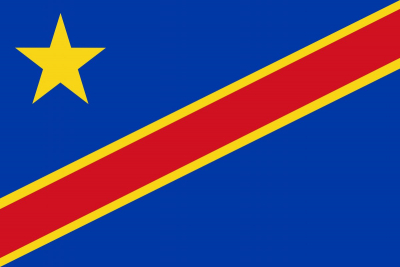Patrice mery Lumumba (; alternatively styled Patrice Hemery Lumumba; 2 July 1925 17 January 1961) was a Congolese politician and independence leader who served as the first prime minister of the independent Democratic Republic of the Congo (then Republic of the Congo) from June until September 1960. He played a significant role in the transformation of the Congo from a colony of Belgium into an independent republic. Ideologically an African nationalist and pan-Africanist, he led the Congolese National Movement (MNC) party from 1958 until he was assassinated.
Shortly after Congolese independence in 1960, a mutiny broke out in the army, marking the beginning of the Congo Crisis. Lumumba appealed to the United States and the United Nations for help to suppress the Belgian-supported Katangan secessionists led by Mose Tshombe. Both refused due to suspicions among the Western world that Lumumba ambiguously held pro-communist views. These suspicions deepened when Lumumba turned to the Soviet Union for assistance, which the CIA described as a "classic communist takeover". This led to growing differences with President Joseph Kasa-Vubu and chief-of-staff Joseph-Dsir Mobutu, as well as with the United States and Belgium, who opposed the Soviet Union in the Cold War.
After Mobutu's military coup, Lumumba attempted to escape to Stanleyville to join his supporters who had established a new anti-Mobutu rival state called the Free Republic of the Congo. Lumumba was captured and imprisoned en route by state authorities under Mobutu. He was handed over to Katangan authorities, and executed in the presence of Katangan and Belgian officials and officers. The bodies were then thrown into shallow graves, but later dug up and destroyed.Following his assassination, he was widely seen as a martyr for the wider pan-African movement. Over the years, inquiries have shed light on the events surrounding Lumumbas death and, in particular, on the role played by Belgium, and the United States. In 2002, Belgium formally apologised for its role in the assassination.
The Republic of the Congo (French: République du Congo) was a sovereign state in Central Africa, created with the independence of the Belgian Congo in 1960. From 1960 to 1966, the country was also known as Congo-Léopoldville (after its capital) to distinguish it from its northwestern neighbor, which is also called the Republic of the Congo, alternatively known as "Congo-Brazzaville". In 1964, the state's official name was changed to the Democratic Republic of the Congo, but the two countries continued to be distinguished by their capitals; with the renaming of Léopoldville as Kinshasa in 1966, it became also known as Congo-Kinshasa. After Joseph Désiré Mobutu, later Mobutu Sese Seko, commander-in-chief of the national army, seized control of the country, it became the Republic of Zaire in 1971. It would again become the Democratic Republic of the Congo in 1997. The period between 1960 and 1964 is referred to as the First Congolese Republic.

1961Jan, 17
Former Congolese Prime Minister Patrice Lumumba is murdered in circumstances suggesting the support and complicity of the governments of Belgium and the United States.
Choose Another Date
Events on 1961
- 8Jan
Charles de Gaulle
In France a referendum supports Charles de Gaulle's policies in Algeria. - 16Apr
Fidel Castro
In a nationally broadcast speech, Cuban leader Fidel Castro declares that he is a Marxist-Leninist and that Cuba is going to adopt Communism. - 1May
Fidel Castro
The Prime Minister of Cuba, Fidel Castro, proclaims Cuba a socialist nation and abolishes elections. - 25Jul
NATO
In a speech John F. Kennedy emphasizes that any attack on Berlin is an attack on NATO. - 10Aug
Agent Orange
First use in Vietnam War of the Agent Orange by the U.S. Army.

 English
English  español
español  français
français  português
português  русский
русский  العربية
العربية  简体中文
简体中文 